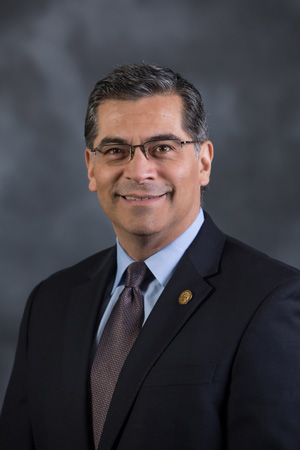January 12, 2021 - SACRAMENTO – California Attorney General Xavier Becerra on Monday, as part of a 12-state coalition, submitted comments to the Environmental Protection Agency (EPA) arguing that  its new draft guidance misinterprets the U.S. Supreme Court’s decision in County of Maui v. Hawaii Wildlife Fund. In County of Maui, the Supreme Court established a new standard to determine if the indirect discharge of wastewater through groundwater or another similar conduit into waters of the United States is subject to a Clean Water Act permit. In the comment letter, the coalition argues that the EPA’s draft guidance tips the scales in favor of polluters by providing them with additional arguments to avoid regulation under the Clean Water Act, contravenes the purpose of the Act, and conflicts with the Court's decision in County of Maui.
its new draft guidance misinterprets the U.S. Supreme Court’s decision in County of Maui v. Hawaii Wildlife Fund. In County of Maui, the Supreme Court established a new standard to determine if the indirect discharge of wastewater through groundwater or another similar conduit into waters of the United States is subject to a Clean Water Act permit. In the comment letter, the coalition argues that the EPA’s draft guidance tips the scales in favor of polluters by providing them with additional arguments to avoid regulation under the Clean Water Act, contravenes the purpose of the Act, and conflicts with the Court's decision in County of Maui.
“With its new draft guidance, the Trump Administration is desperately reaching outside the bounds of a Supreme Court decision in an attempt to give polluters the upper hand,” said Attorney General Becerra. “Our oceans and waters should be free from pollutants such as sewage and wastewater. We urge the Trump Administration to rethink this latest attempt to chip away at the Clean Water Act’s protections.”
The Clean Water Act reflects Congress’ policy to “recognize, preserve, and protect the primary responsibilities and rights of states to prevent, reduce, and eliminate pollution” of waters within their borders. The Clean Water act prohibits the “discharge of any pollutant” to waters of the United States unless the discharge is authorized by a permit. In July 2019, Attorney General Becerra joined a multistate coalition in submitting a friend of the court brief in County of Maui v. Hawaii Wildlife Fund urging the Supreme Court to uphold the Court of Appeals’ decision that discharges of pollutants from a point source through groundwater or any other conduit into navigable waters are subject to Clean Water Act permits where the pollutants are fairly traceable to the point source.
Citing the multistate brief, the Supreme Court held that indirect point source discharges are subject to permit regulation under the Clean Water Act if the discharge from the point source is “functionally equivalent” to direct discharge. The Court identified seven factors, including time and distance, that can be used to determine if a permit is required. However, in its draft guidance, the EPA proposes an additional factor that is inconsistent with the “functional equivalent” standard and would make it easier for potential polluters to avoid regulation under the Clean Water Act.
In the comment letter, the coalition argues that the EPA’s draft guidance undermines the objective and intent of the Clean Water Act, is unlawful, and should be abandoned. The EPA’s proposed additional factor is inconsistent with the Supreme Court’s decision in County of Maui and would only serve to complicate, confuse, and delay permitting processes under the Clean Water Act.
Attorney General Becerra joins the Attorneys General of Maryland, Connecticut, Illinois, Maine, Massachusetts, Michigan, New Mexico, Oregon, Rhode Island, Vermont, and the District of Columbia.
A copy of the comment letter is available here.
Source: CA. DOJ
